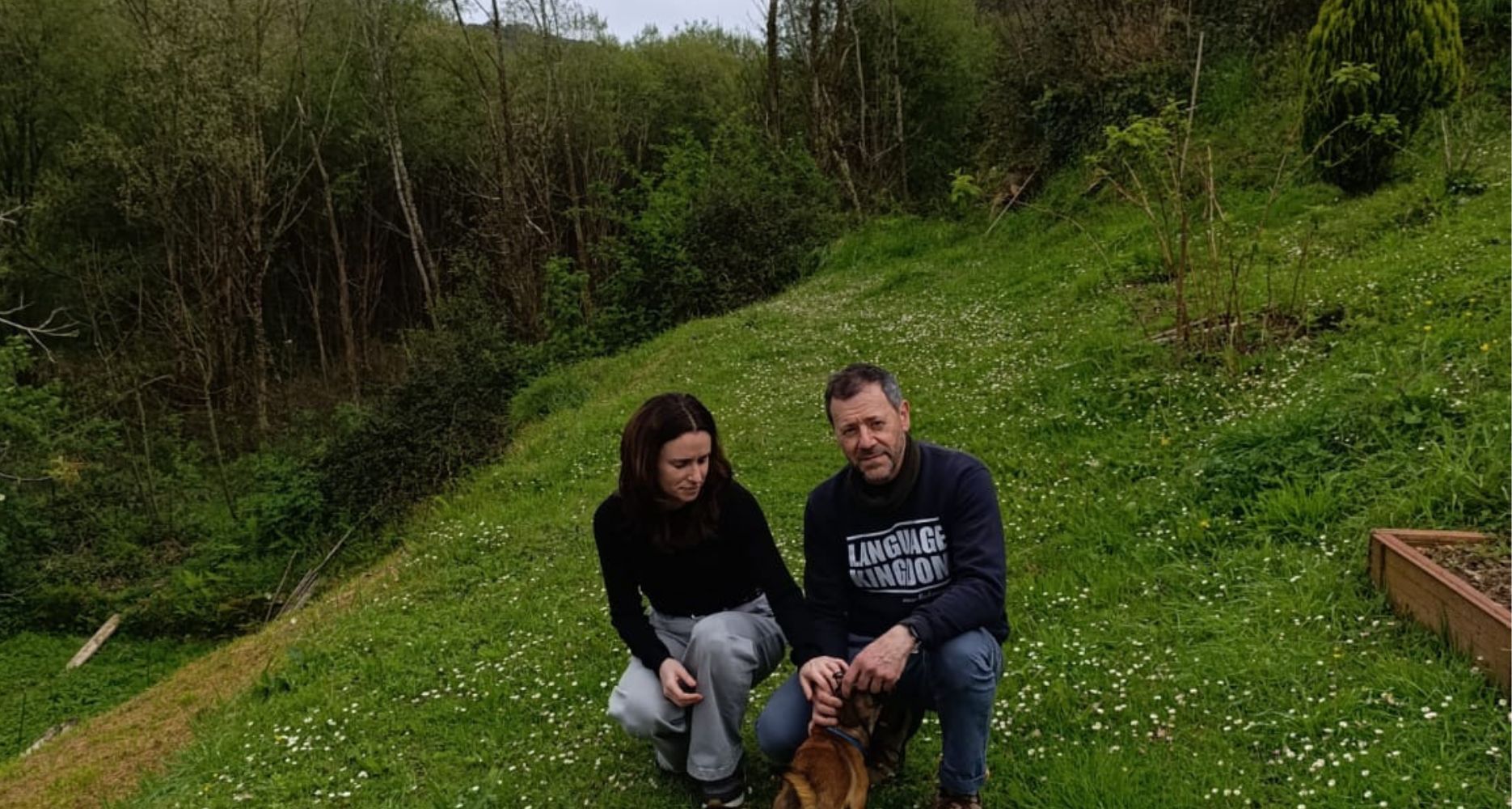Eight-year-old Sara is a little girl living with Pompe disease, a rare genetic pathology that causes progressive muscle damage and severely limits her mobility. Through the testimony of her parents, Cristina and Nacho, we can delve into the daily challenges they face as a family in their struggle to provide their daughter with the 'simplest' life possible.

Diagnosis
Sara's diagnosis came when she was only four months old. "It was quite a shock," Cristina confesses, as she recalls how they began to notice that something wasn't right with their baby. Although the pediatrician had recommended early care for her inability to lift her head, it wasn't until the little girl became ill with a common cold that doctors began to see more alarming symptoms: "You'd let her lie down and she'd stay in an open book position," Nacho explains, referring to hypotonia, a key symptom of Pompe disease.
That was the beginning of a long and distressing process. The parents, new to the disease and unfamiliar with it, were unfamiliar with its symptoms. "We were referred to a different hospital than the one we usually went to in Avilés and we were told not to investigate on our own because the process had to be followed by professionals," Cristina recalls. However, despite the medical recommendation not to seek information, they now think that that month and a half of waiting was crucial. "We could have quietly gained a month, and perhaps we could have prevented Sara from getting worse," her father reflects.
For this pathology, it is key to start treatment as soon as possible and that is why Sara's parents demand neonatal screening for this pathology and ask that the protocol be accelerated so that "Pompe can be ruled out as the first option, before any other pathology," Cristina explains. "Sara started with medication a few days after receiving the diagnosis, but the disease had already caused a lot of damage," her mother recounts, pointing out how the little girl was already malnourished despite efforts to feed Sara in a conventional way, and that it was necessary to put a nasogastric tube and a gastrostomy to ensure that she could receive adequate nutrition. All of this while being admitted to a hospital with a baby just four months old and not at home.
Life with Pompe
Today, at eight years old, Sara continues to receive intravenous treatment every 14 days for the rest of her life. "It's a long process. It's six hours of treatment, administered very slowly," explains Nacho. Although she is somewhat more active after each session, hospital visits, tests and doctor visits and treatment are a constant factor in the life of Sara and her family. "This type of life conditions and will undoubtedly condition her day-to-day life," Cristina acknowledges.
The fact that Sara has to be in the hospital for so many hours every 15 days is not easy, especially when school demands increase. "It's not easy, but we try not to make Sara see it as something negative. At the hospital, we bring toys and games to distract her. We try not to make her associate it with something that causes her distress," adds Cristina. Despite concerns about the future, her mother stresses that "right now, she is still happy, she goes to school, has friends and enjoys what she can do".
Despite the constraints of the little girl's life, her parents work to give her as normal a school life as possible. "Sara goes to a regular school, like all the other children," although she has the help of a school assistant who assists with her mobility and physical activities. "In physical education, Sara participates using a walker, and her teacher makes sure that all games are adapted for her," her parents explain.
However, the limitations of the support system are evident, such as the shortage of aides. "Sara needs a lot of attention time," she stresses, "She needs someone to be with her all the time to prevent falls." Cristina also highlights that the support staff is not always sufficient to meet the needs of all the children. "This year we have talked to the school and another half assistant has been hired. There is one and a half for the whole school," she explains.
At times, Sara's physical limitations become evident during recess, when the other children run and play, something Sara is unable to do. "Sometimes she prefers to stay in the library, a quiet space where she feels more comfortable," Nacho points out. Despite everything, the school environment has been understanding and supportive, and Sara feels accepted. "When she is with her friends, she plays quietly. Sometimes she brings dolls and they play together, adapting the game to her possibilities, because otherwise she gets too tired," they explain.
"Sara needs someone to be all
time with her to avoid falls".
Also, on the part of the families of Sara's classmates, her parents note a lot of support and understanding, "you can see that they are sensitive and want to educate their children in inclusion and empathize with Sara," they say.
In the same vein, Sara's parents have learned to appreciate the small victories, those that others might consider everyday. "The first time I sat her in a swing, the first time we switched to 'normal' feeding, when we took her to the supermarket with us... ", Cristina recalls, visibly moved. These moments, full of special meanings, are celebrated with intensity. "I remember the first day Sara went on her first field trip and my brother called me and I was crying so excited about it," recalls her mother, who sees in every achievement a reason to celebrate her little girl's life.
However, the reality of caring for a child with a rare disease also demands sacrifices. "One of us has had to stop working". The family has opted to organize themselves so that one of the parents takes a year's leave to take care of Sara, and her care has transformed Cristina and Nacho into nursing experts, although they are not trained to do so. "At first it generates a lot of fear, because you see her so small and so fragile," Cristina acknowledges. "But, look, there comes a time when you prefer to do it yourself because, in the end, you are the one who knows your daughter best".
In addition to the practical learning, the parents emphasize without hesitation that the support of the Pompe Association has been fundamental. "I think what you have to tell parents who are like we were is, first of all, to talk to the association, because especially that first diagnosis is very destabilizing and all parents have endless questions about it," advises Cristina. The association not only offers medical support, but also provides an emotional network that helps families cope with the situation.
Although the future remains uncertain, Sara's family remains hopeful. "The logical thing is that the children will get better and better," says Cristina, noting that advances in treatments and early diagnosis provide hope for new generations.
Sara's family, marked by their daughter's rare disease, has found a way of living in which every day is an opportunity to celebrate life, victories, and the privilege of watching their little girl grow up.
